10 Modern Scientists and Academicians Who Embraced Islam
This list features ten remarkable scientists from various fields who found their way to Islam. Their journeys to faith were often inspired by their studies, personal experiences, or the profound connection they felt between the Quran’s teachings and scientific discoveries. These individuals, including mathematicians, biologists, and astrophysicists, have made significant contributions to their fields while embracing Islam as a guiding force in their lives.
Maurice Bucaille (1920–1998)
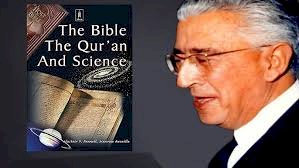
Maurice Bucaille was a renowned French physician and author who gained global recognition for his groundbreaking work, The Bible, the Quran, and Science. Initially a sceptic, Bucaille embarked on an in-depth study of religious scriptures and their compatibility with modern science. His research, particularly on the scientific accuracy of the Quran, led him to embrace Islam in 1976.
Bucaille highlighted how the Quran contained advanced scientific knowledge about embryology, astronomy, and geology—facts that were only discovered centuries later. His book has been translated into numerous languages, inspiring scholars and readers worldwide to explore the harmony between faith and reason.
Gary Miller (Born 1941)
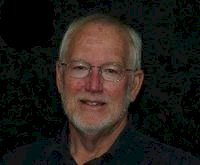
Gary Miller, born in 1941, is a Canadian mathematician and former Christian missionary who embraced Islam in 1978, adopting the name Abdul-Ahad Omar. His journey to Islam began with an analytical study of the Quran, where he was struck by its scientific insights and internal consistency. Following his conversion, Miller dedicated himself to Islamic scholarship and education, authoring works such as "The Amazing Quran," which explores the Quran's alignment with modern science.
He has also delivered numerous lectures and participated in interfaith dialogues, aiming to bridge understanding between Islam and other faiths. Miller's unique perspective as a former missionary turned Muslim scholar has made significant contributions to contemporary Islamic thought.
Jeffery Lang (1954–Present)
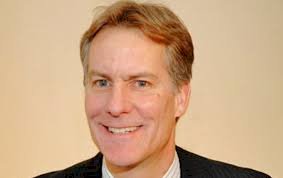
Dr. Jeffery Lang is an American mathematician and professor at the University of Kansas who is renowned for his journey to Islam and his thought-provoking reflections on faith. Born in a devout Catholic family, Lang became an atheist during his teenage years due to unresolved questions about life and suffering. His perspective shifted in his late 20s after receiving a Quran as a gift from a Muslim student. Struck by its logical depth and spiritual resonance, Lang embraced Islam in 1982.
He has since authored several influential books, including Struggling to Surrender and Even Angels Ask, which explore his conversion experience, the challenges faced by Muslims in the modern world, and the rational foundation of Islamic beliefs. Lang's candid writing and intellectual honesty have made him a prominent voice in contemporary Islamic thought, particularly for those seeking a reasoned understanding of faith.
Titus Burckhardt (1908–1984)
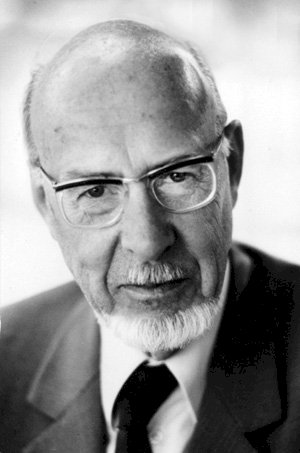
Titus Burckhardt was a Swiss art historian, philosopher, and renowned scholar of Islamic art and spirituality. Born in Florence, Italy, he was deeply influenced by the cultural and intellectual richness of his environment. Burckhardt converted to Islam early in his life and adopted the name Ibrahim Izz al-Din. He dedicated much of his career to exploring the metaphysical and artistic traditions of Islam.
Burckhardt's work focused on the harmony between art, spirituality, and culture, particularly within the Islamic world. His seminal books, such as "Art of Islam: Language and Meaning" and "Sacred Art in East and West," highlight the spiritual dimensions of art and architecture in Islamic civilization. His deep understanding of Islamic philosophy, mysticism, and art made him a respected figure in both academic and spiritual circles. He worked extensively to preserve the cultural heritage of Fez, Morocco, contributing to its designation as a UNESCO World Heritage Site.
Roger Garaudy (1913–2012)
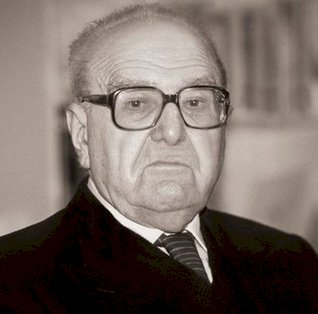
Roger Garaudy was a French philosopher, politician, and writer who left a profound mark on 20th-century intellectual and spiritual thought. Initially a Marxist and a member of the French Communist Party, Garaudy later embraced Christianity before converting to Islam in 1982. His journey to Islam was rooted in his quest for universal truth, justice, and a harmonious relationship between faith and reason.
Known for his critique of Western materialism and his emphasis on the ethical and spiritual dimensions of human life, Garaudy authored influential works such as "The Founding Myths of Modern Israel" and "Promesses de l'Islam" (The Promises of Islam). His conversion brought a unique perspective to contemporary Islamic thought, advocating interfaith dialogue and the integration of spiritual values into modern life. Despite controversies surrounding some of his later works, Garaudy remains a significant figure for his intellectual contributions and his dedication to exploring the intersections of philosophy, religion, and culture.
Joel Hayward (1964–Present)
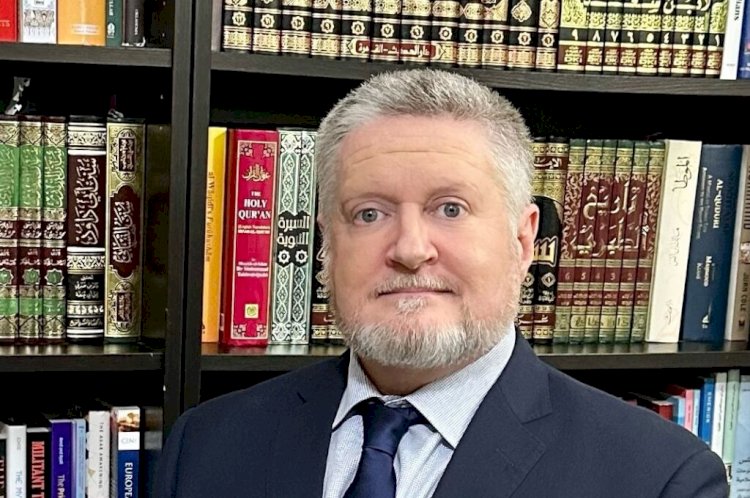
Joel Hayward is a New Zealand-born British scholar, author, and academic renowned for his contributions to strategic studies, Islamic history, and literature. Born on May 27, 1964, in Christchurch, New Zealand, he pursued higher education at the University of Canterbury, earning his BA, MA (Hons), and PhD degrees. Hayward has held several prominent academic positions, including Dean of the Royal Air Force College Cranwell and Chief Executive of the Cambridge Muslim College in the United Kingdom.
His scholarly work encompasses a wide range of topics, from airpower and joint warfare to Islamic concepts of war and strategy. Notable publications include "Stopped at Stalingrad", "For God and Glory", and "The Leadership of Muhammad: A Historical Reconstruction", which was honored as the Best International Non-Fiction Book at the 2021 Sharjah International Book Awards. In recognition of his influence, Hayward has been listed in The World's 500 Most Influential Muslims for the years 2023, 2024, and 2025.
Fatimah Jackson (1950–Present)
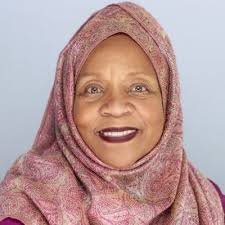
Dr. Fatimah Jackson is an acclaimed American biologist and anthropologist, renowned for her groundbreaking work in genetics, human biology, and ethnogenetics. Born in 1950, she embraced Islam in 1979 during her graduate studies, finding a profound alignment between her scientific pursuits and the ethical framework of Islam. Currently a professor at Howard University, she also serves as the Director of the W. Montague Cobb Research Laboratory.
Her research focuses on human-plant coevolution, population genetics, and health disparities, making significant contributions to understanding the intersections of biology, culture, and history. Dr. Jackson is celebrated for her dedication to integrating scientific inquiry with a holistic, ethical approach inspired by her faith.
Jackie Yi-Ru Ying (1966–Present)
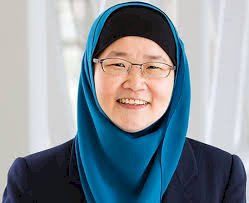
Jackie Yi-Ru Ying is a Taiwanese-born American nanotechnology scientist renowned for her pioneering contributions to the synthesis of advanced nanomaterials and their applications in catalysis, energy conversion, and biomedicine. Born on April 30, 1966, in Taipei, Taiwan, she moved to Singapore in 1973, where she attended Rulang Primary School and Raffles Girls' School. Ying earned her Bachelor of Engineering from Cooper Union in 1987 and her Ph.D. in Chemical Engineering from Princeton University in 1991. She embraced Islam in 2001, the same year her daughter was born. Her conversion was influenced by her personal experiences and reflections during that period.
She began her academic career at the Massachusetts Institute of Technology (MIT) in 1992, becoming one of the youngest full professors at MIT in 2001. In 2003, she returned to Singapore to serve as the founding Executive Director of the Institute of Bioengineering and Nanotechnology (IBN). Under her leadership, IBN made significant strides in nanomedicine and biomaterials. Ying's work has been recognized with numerous accolades, including the King Faisal Prize in Science in 2023 for her synthesis of various advanced nanomaterials and systems.
Dr. Henry Klassen (1960–Present)
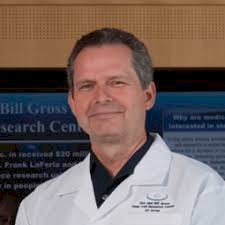
Dr. Henry Klassen is a renowned stem cell scientist and ophthalmologist recognized for his pioneering work in retinal regeneration. He earned his MD and PhD degrees from the University of Pittsburgh, completed an internship at The Cambridge Hospital affiliated with Harvard Medical School, and pursued a residency in ophthalmology at Yale Eye Center.
In March 2024, Dr. Klassen publicly embraced Islam, adopting the name Abdul Haq. His conversion was influenced by his admiration for the resilience of the people of Gaza and his study of Islamic teachings. Following his conversion, he observed his first Ramadan, including fasting and performing Taraweeh prayers.
Bruno Guiderdoni (1958–Present)
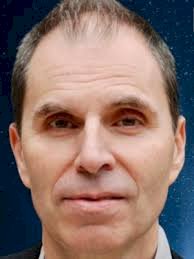
Bruno Guiderdoni is a distinguished French astrophysicist renowned for his extensive research on galaxy formation and evolution. Born on September 30, 1958, he earned his Ph.D. in astronomy from the University of Paris in 1986. Throughout his career, Guiderdoni has held prominent positions, including serving as the director of the Lyon Observatory from 2005 to 2015.
His scientific contributions are complemented by his profound interest in Islamic theology and mysticism. In 1987, he embraced Islam, adopting the name Abd al-Haqq. Guiderdoni has since authored numerous papers exploring the intersection of science and religion, emphasizing the harmony between Islamic teachings and scientific inquiry. His unique perspective bridges the gap between empirical research and spiritual understanding, making significant contributions to both fields.
Disclaimer
The views expressed in this article are the author’s own and do not necessarily mirror Islamonweb’s editorial stance.

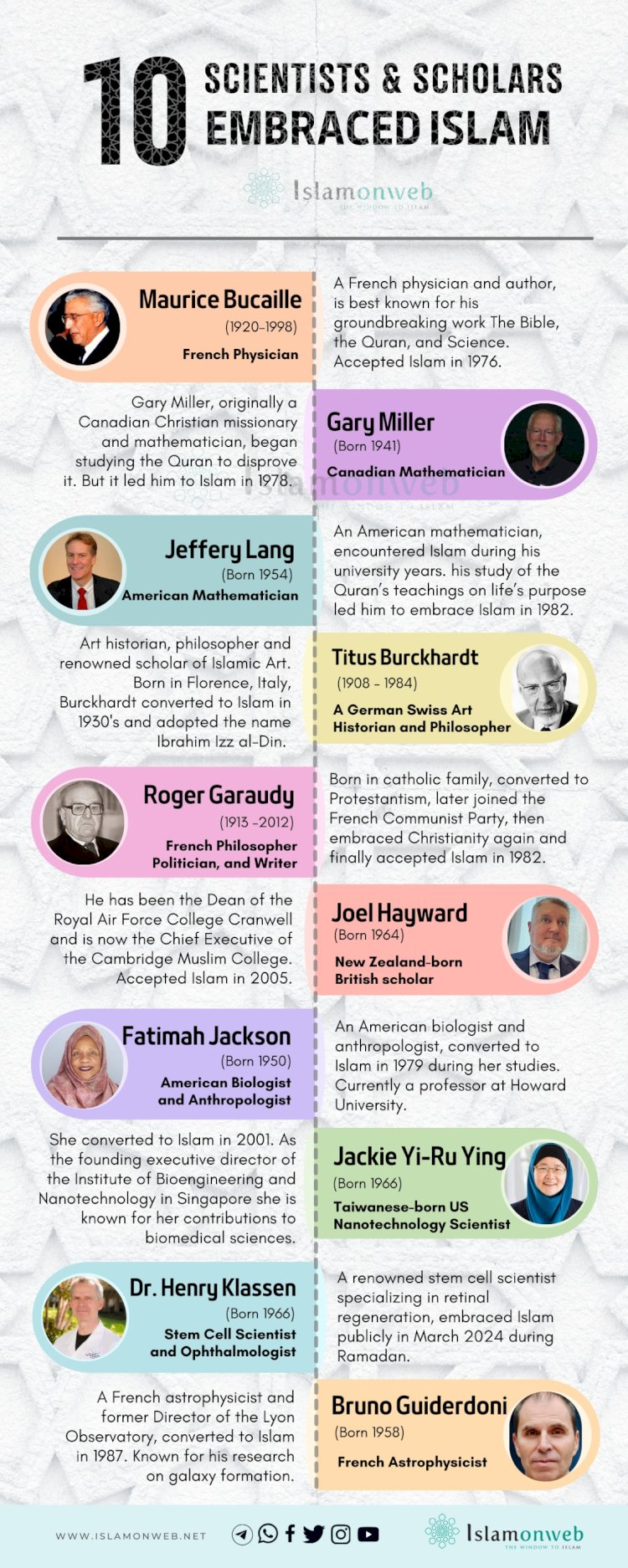



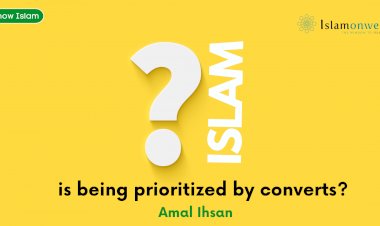
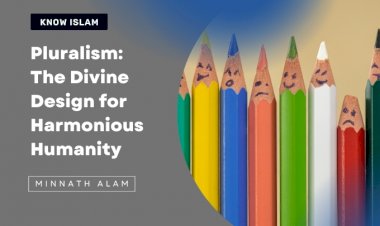

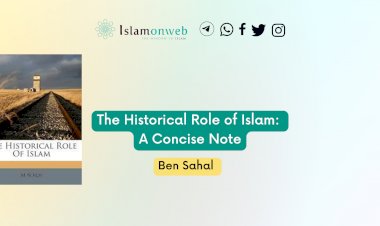
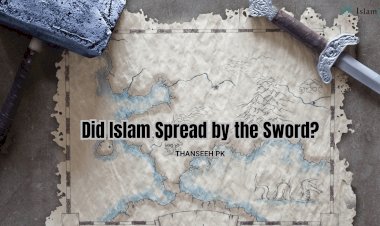
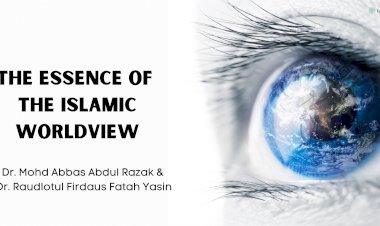














Leave A Comment